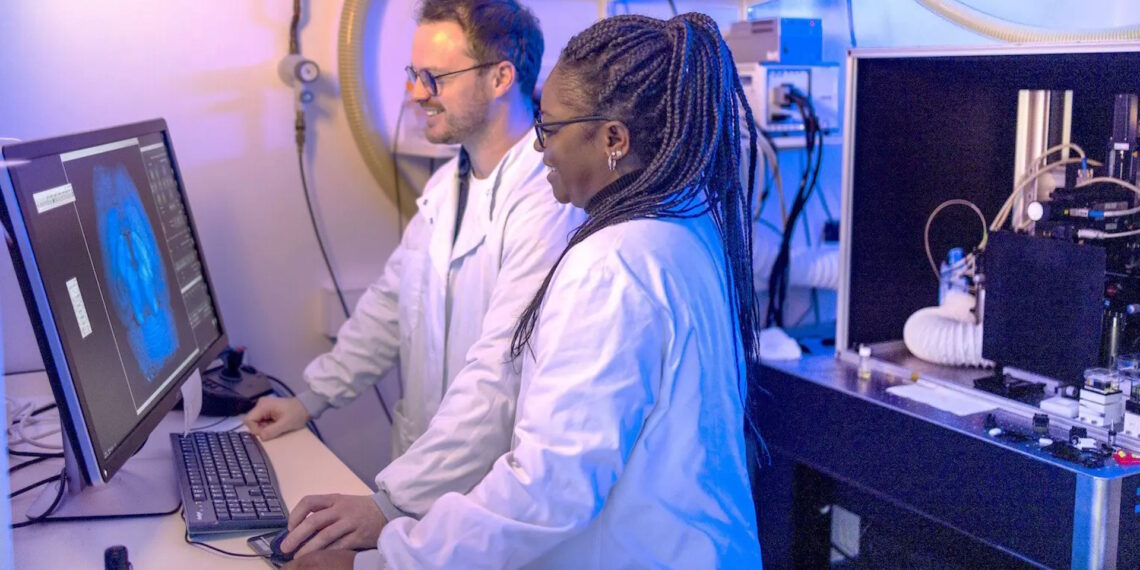How Collaborative Research is Transforming Scientific Discovery

Scientific discovery is increasingly being shaped by collaborative research, where experts from diverse disciplines come together to tackle complex challenges. Interdisciplinary collaboration is now recognized as a key driver of scientific breakthroughs, enabling innovations that would not be possible through isolated efforts. This article explores how teamwork and diverse expertise are reshaping the landscape of modern science.
The Power of Interdisciplinary Collaboration in Science
Traditionally, scientific research was often siloed within individual fields, with researchers working independently. However, in recent years, the value of interdisciplinary collaboration has become more evident. By combining knowledge from different fields, researchers can approach problems from multiple perspectives, leading to more holistic solutions.
- Cross-Disciplinary Approaches: Collaboration between experts in fields like biology, engineering, and data science is essential for developing new technologies and methods in areas such as medicine, environmental science, and renewable energy.
- Problem-Solving Efficiency: By pooling resources and expertise, teams can solve complex problems faster. For example, genomics research often requires a mix of computational skills, biology knowledge, and medical expertise to decode genetic information effectively.
- Shared Resources: Collaborative research often involves sharing laboratories, equipment, and datasets, making it easier for scientists to access the tools they need without duplicating efforts.
As the challenges faced by researchers grow more complex, collaboration has become a fundamental part of modern science.

Accelerating Scientific Breakthroughs Through Teamwork
One of the most significant advantages of collaborative research is its ability to accelerate scientific breakthroughs. With teams of researchers working together, the pace of discovery increases, leading to faster advancements in critical areas like medicine, technology, and environmental science.
- Faster Problem Resolution: By leveraging the collective skills and knowledge of a team, problems that would take months or even years to solve can be addressed in a fraction of the time.
- Innovative Solutions: Collaboration often sparks new ideas, with researchers bringing fresh perspectives that lead to out-of-the-box thinking and innovative solutions to longstanding challenges.
- Global Collaboration: The rise of global collaboration, enabled by digital tools and communication platforms, allows researchers from around the world to work together on projects that span multiple countries and cultures, further accelerating progress.
These benefits of collaborative teamwork have made it one of the most effective strategies in scientific discovery.

Leveraging Diverse Expertise for Innovation
In today’s rapidly evolving scientific landscape, leveraging diverse expertise is crucial for innovation. Scientists are increasingly recognizing that breakthroughs often occur when they combine their unique skills and knowledge with those of experts from other fields.
- New Technologies and Techniques: Experts in artificial intelligence, for instance, can collaborate with biologists to apply machine learning techniques to genomic data, driving discoveries that would be difficult for either discipline to achieve alone.
- Inclusive Collaboration: Diverse teams, including those from different cultural, educational, and professional backgrounds, bring a wide array of ideas and approaches, which leads to more creative and well-rounded solutions.
Diversity in expertise not only enhances the scope of research but also drives innovation by merging knowledge from various fields.
The power of collaborative research lies in the ability to bring together diverse minds, skills, and ideas to tackle complex scientific problems. By fostering interdisciplinary collaboration, accelerating breakthroughs through teamwork, and leveraging diverse expertise, modern science is able to move forward at an unprecedented pace. As the challenges of the future become more interconnected, collaboration will remain a cornerstone of successful scientific discovery, driving innovation and progress across all fields of research.

